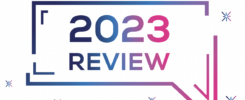In the swiftly evolving landscape of contemporary workplaces, the advent of the new year marks a pivotal moment for organizations to embrace a transformative approach to performance management, aptly referred to as Performance Management 2.0. In 2024, this innovative strategy emphasizes continuous feedback, goal alignment, and technological integration, setting the stage for individual and organizational growth.
As we embark on the journey of 2024, fostering a culture of continuous feedback is paramount. No longer confined to the traditional annual review, employees and managers engage in regular feedback sessions to facilitate open communication. Weekly one-on-one meetings, for instance, provide opportunities for managers to offer constructive feedback on recent projects, creating a dynamic channel for swift adjustments and improvements.
Aligning individual goals with organizational objectives is crucial. This not only cultivates a sense of purpose but also ensures a shared mission. Goal-setting sessions involving both managers and employees, with goals structured as Specific, Measurable, Achievable, Relevant, and Time-bound (SMART), establish a framework for continuous reviews and adjustments in alignment with changing business priorities.
Performance management, in its evolved state, transcends mere evaluation; it becomes a catalyst for holistic employee development. Identifying areas for improvement and providing tailored resources for growth becomes paramount. Personalized development plans, based on employees’ career aspirations and skill gaps, coupled with access to pertinent training programs and mentorship opportunities, empower employees to actively shape their professional journey.
At the heart of modern performance management lies technology integration, with performance management software at the forefront. Investing in user-friendly tools and providing comprehensive training for both employees and managers ensures a seamless transition to this new paradigm, enhancing efficiency and transparency across the performance management process.
Empowering employees through self-assessment plays a critical role in this innovative approach. Self-assessment components integrated into performance reviews encourage reflection and a deeper understanding of individual contributions. Providing clear guidelines on self-evaluation, emphasizing achievements, and identifying areas for growth fosters a sense of accountability and personal development.
Acknowledgment and recognition form the bedrock of effective performance management, especially in the dawn of a new year. As we step into 2024, organizations are encouraged to establish formal recognition programs that extend beyond traditional approaches. In addition to peer-to-peer recognition and manager-to-employee commendations, tangible rewards such as personalized gift cards, extra vacation days, or public acknowledgments during team meetings can significantly enhance morale and motivation. The goal is not only to celebrate achievements but also to create a culture that continuously reinforces positive behaviors and contributions.
To delve deeper into recognition, organizations can introduce creative initiatives like “Employee of the Month” programs, spotlighting outstanding contributions with public announcements and additional rewards. Recognizing both individual accomplishments and team achievements fosters a sense of camaraderie and collective success, contributing to a positive and motivated workplace atmosphere. It is also a great idea to survey your employees on what their idea of a good recognition program would be. The only thing worse than not having a recognition program is having an out of touch recognition program.
In conclusion, Performance Management 2.0 offers a comprehensive and forward-thinking approach to employee success. As we kickstart 2024, HR professionals can create a workplace culture that not only nurtures individual growth but also propels the overall resilience and success of the organization throughout the year and beyond.


